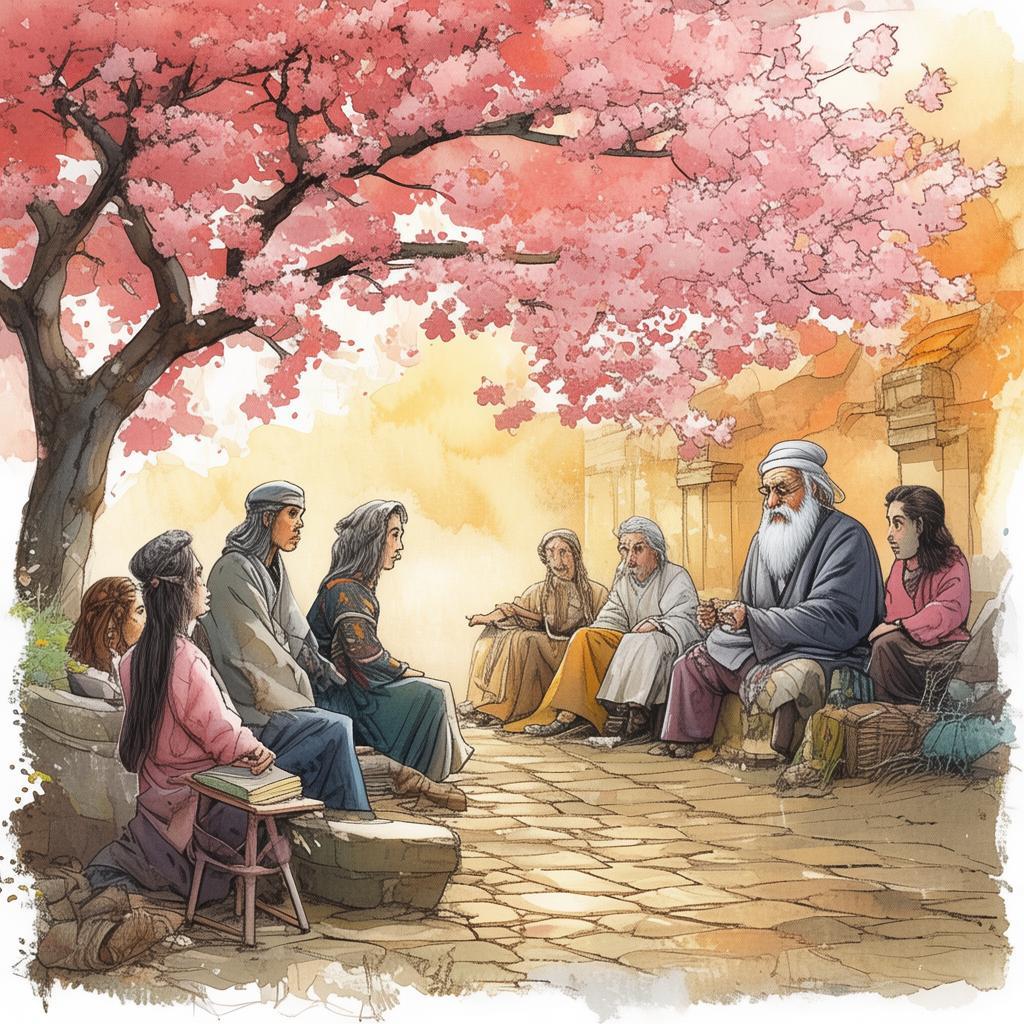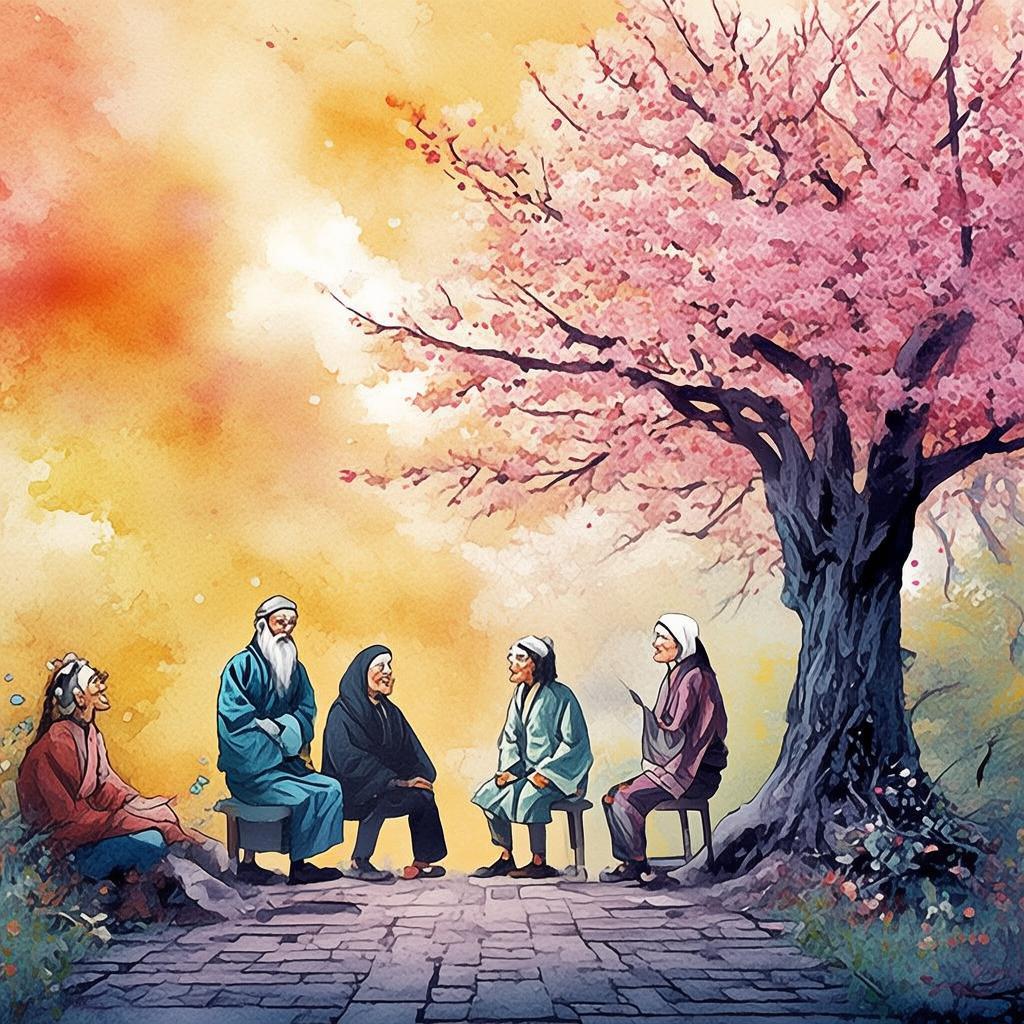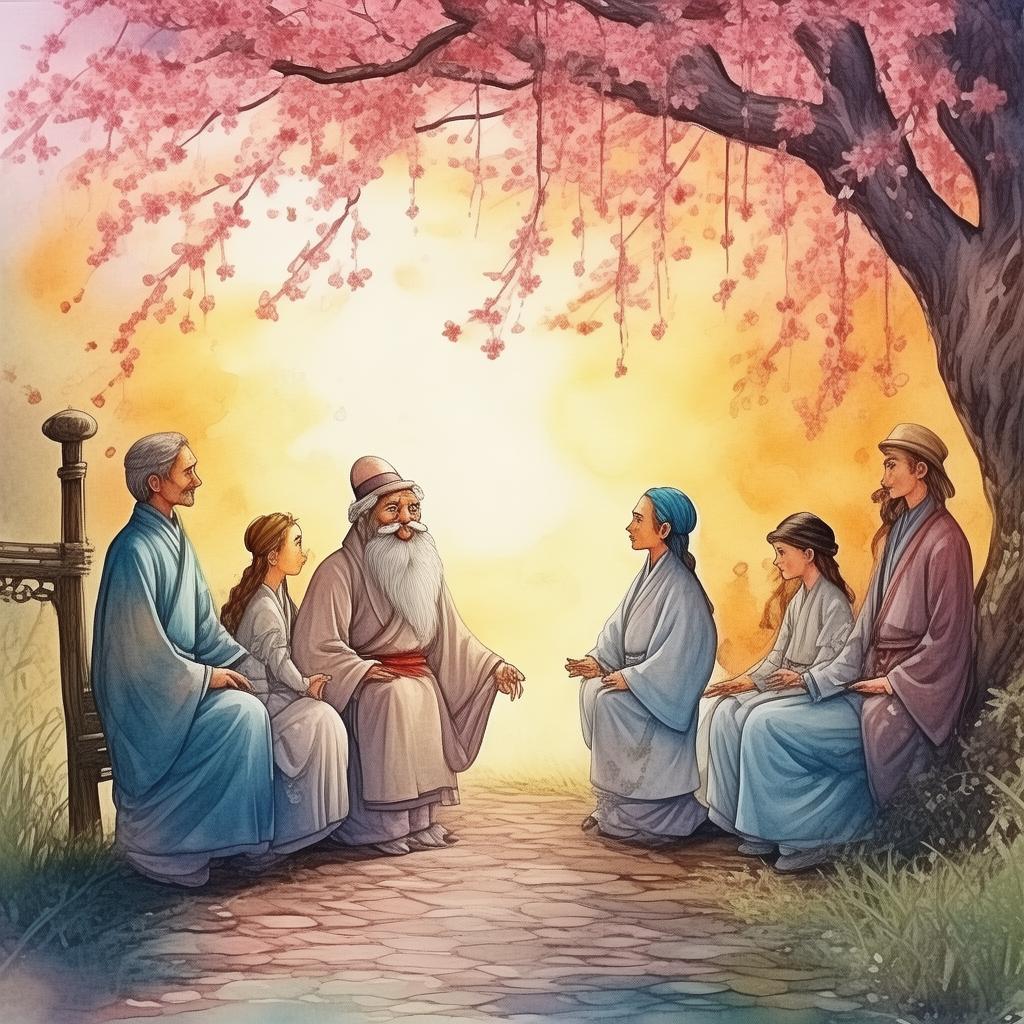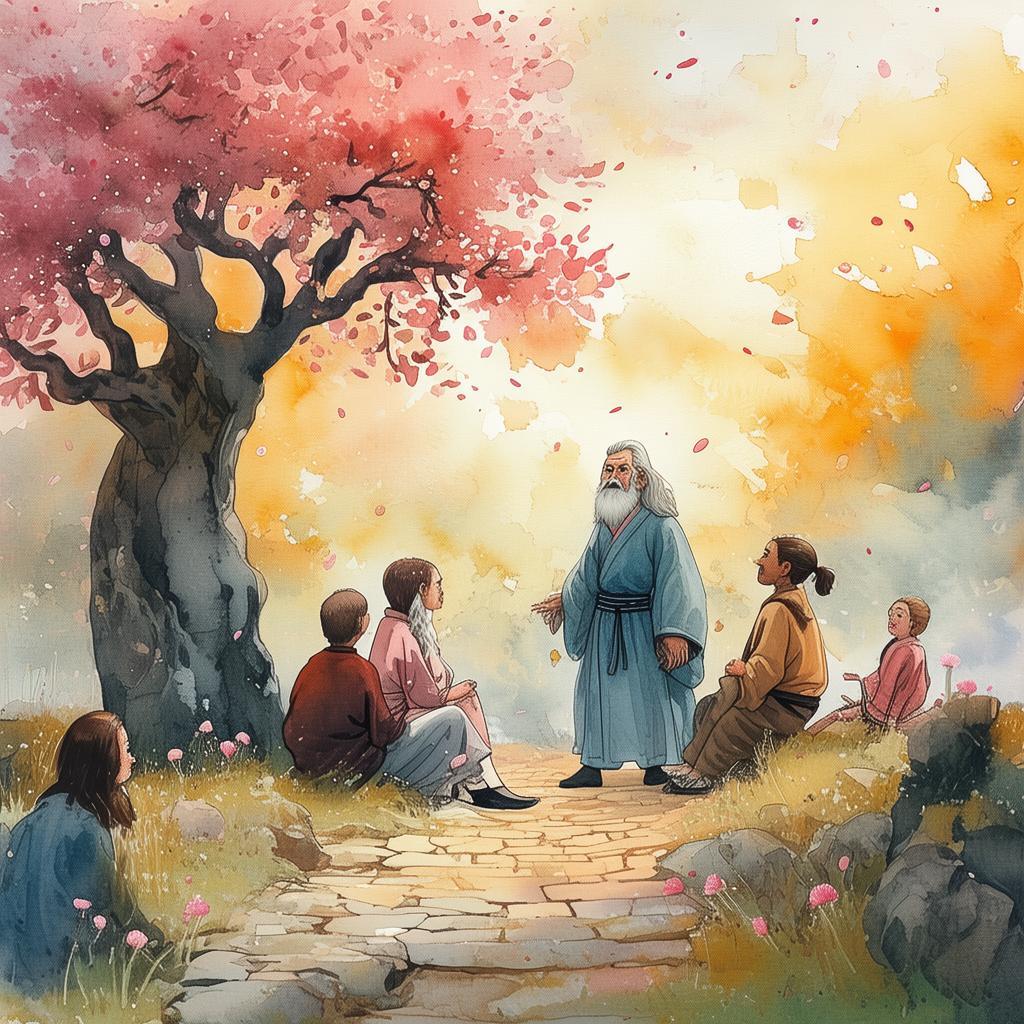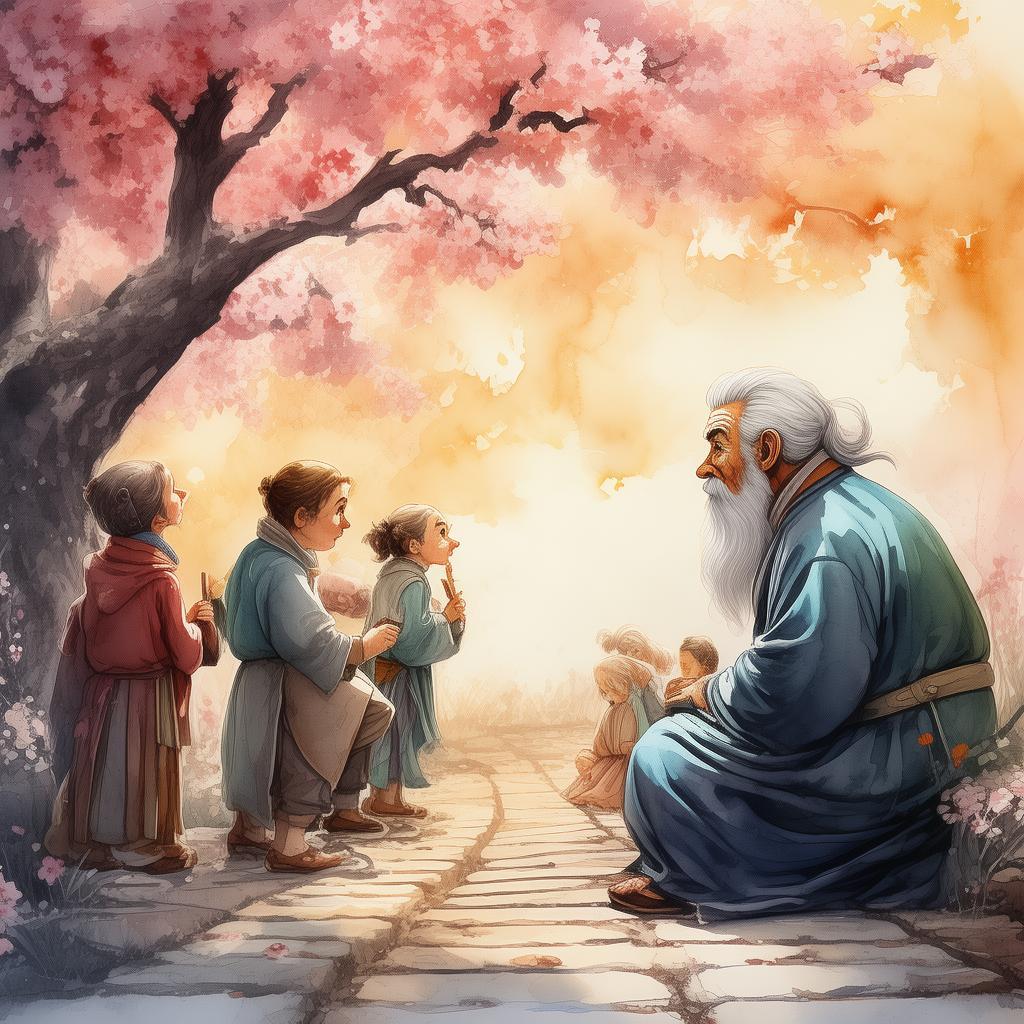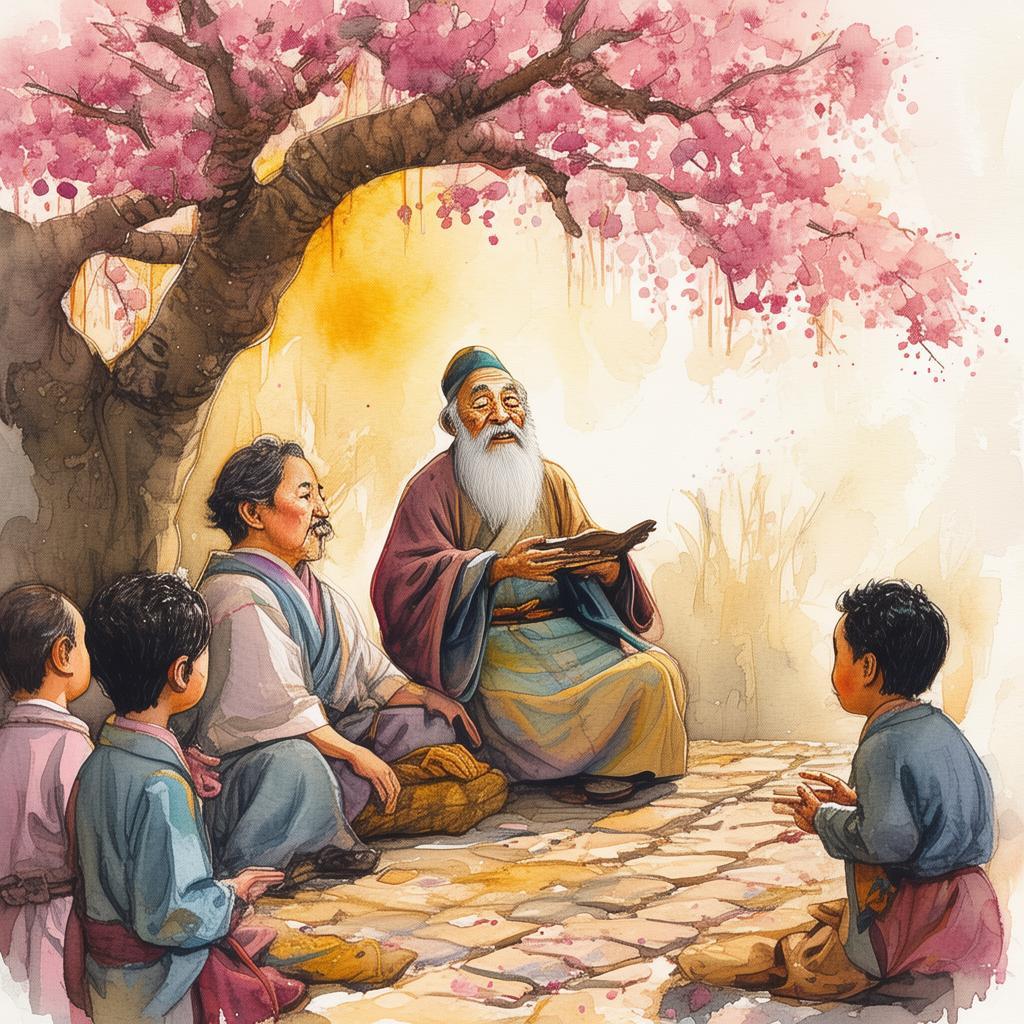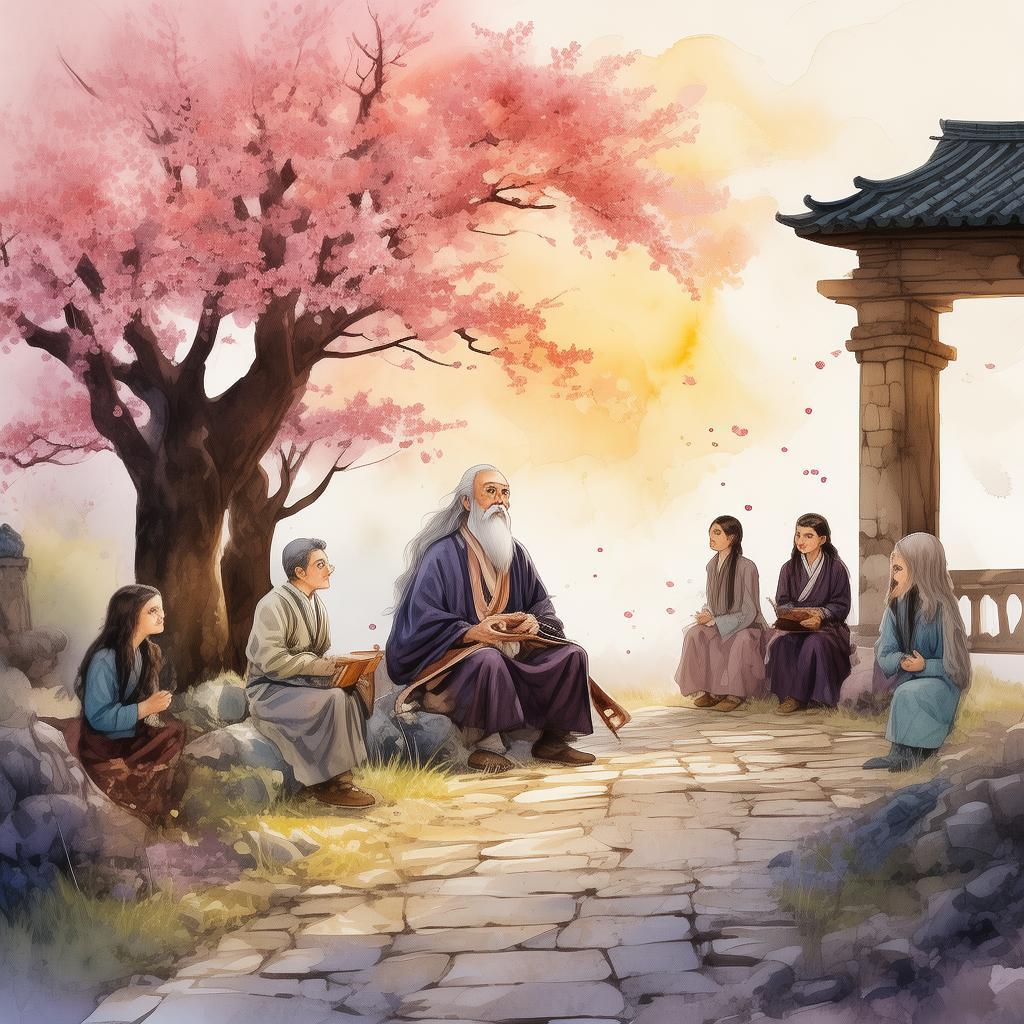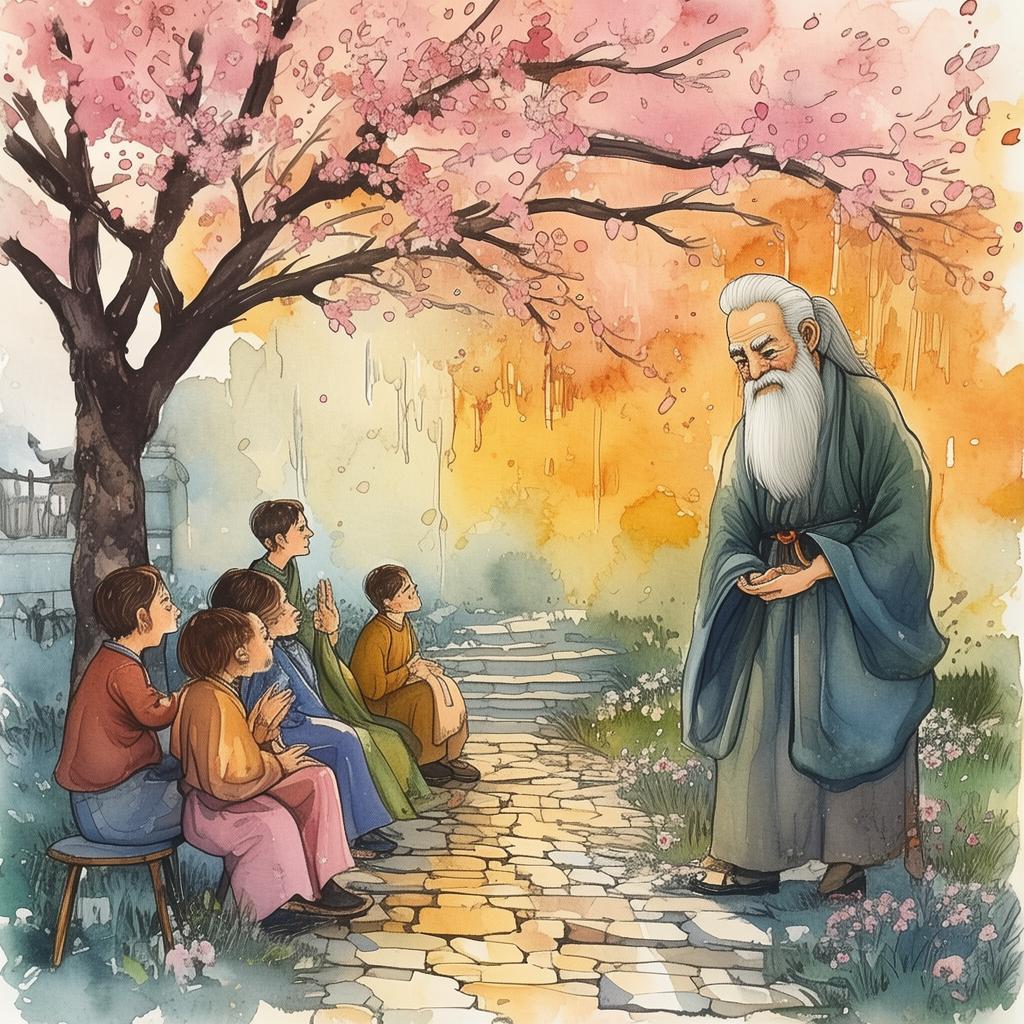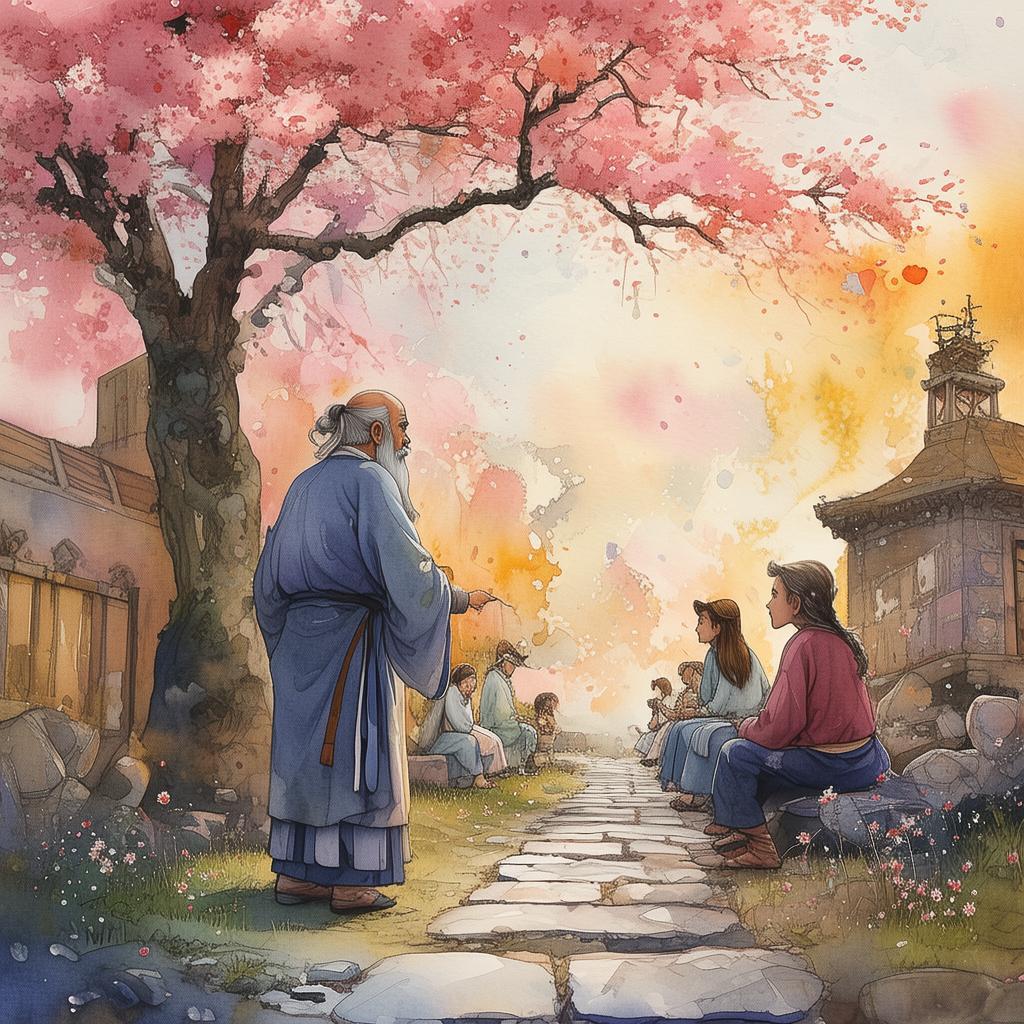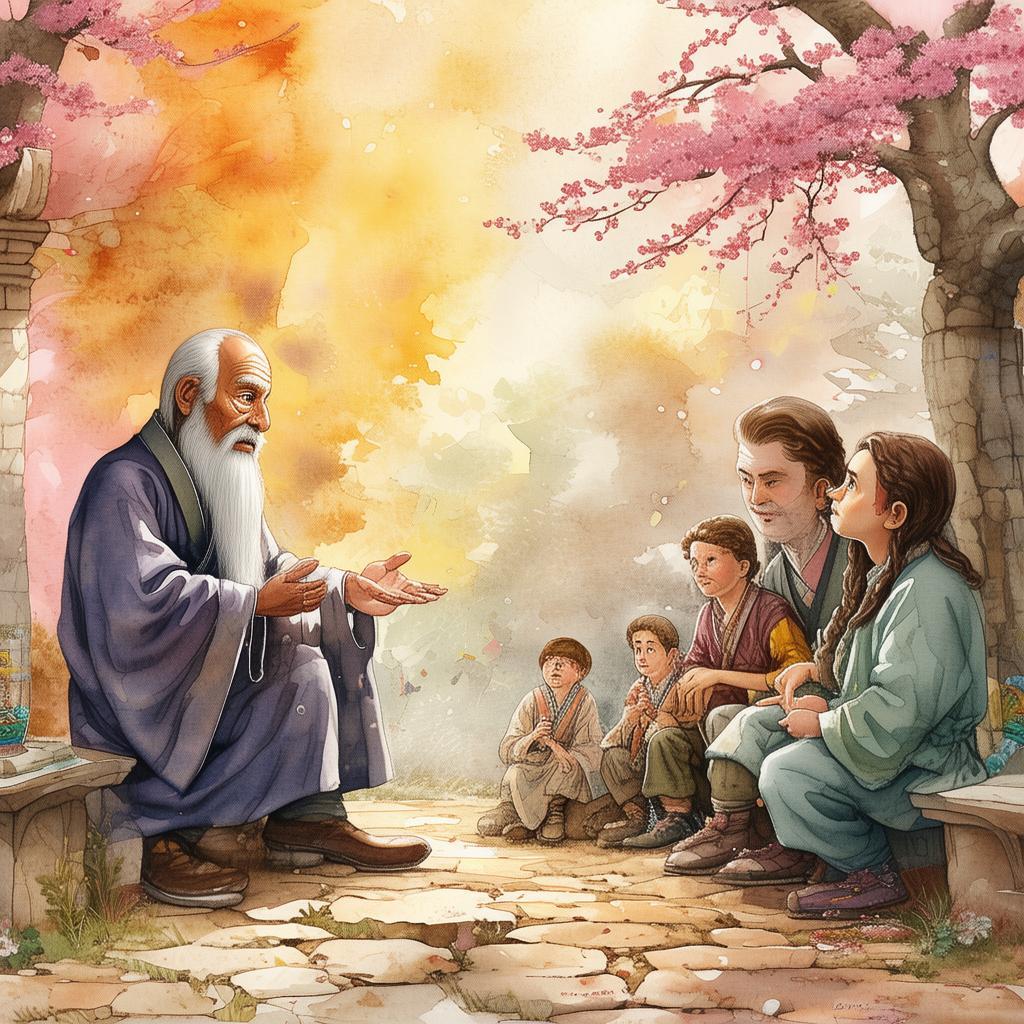The Bard's Lament: Echoes of the Outcast's Song
In the ancient land of Qin, there lived a bard named Lin. Known for his hauntingly beautiful melodies, Lin was a figure of intrigue and mystery. His songs, though soothing, carried the weight of the world's sorrow, reflecting the plight of the outcasts who had been banished from society. They were the outcasts of the land, the forgotten souls whose tales of heartache and injustice Lin sang with a passion that resonated deeply with all who heard him.
The story of Lin and his songs began on a cold winter's night, when he arrived in the town of Chang'an, a place where the outcasts had gathered to seek refuge from the harsh world. As he wandered through the town, his eyes fell upon a small, dimly lit tavern. Inside, he saw a group of outcasts sitting in a corner, their faces etched with tales of sorrow and betrayal.
Lin approached the tavern's owner, a woman named Mei, who had a deep connection with the outcasts. She knew the power of Lin's music and invited him to perform for the outcasts. With a heart full of compassion and a soul burdened by the melodies of the outcasts, Lin agreed.
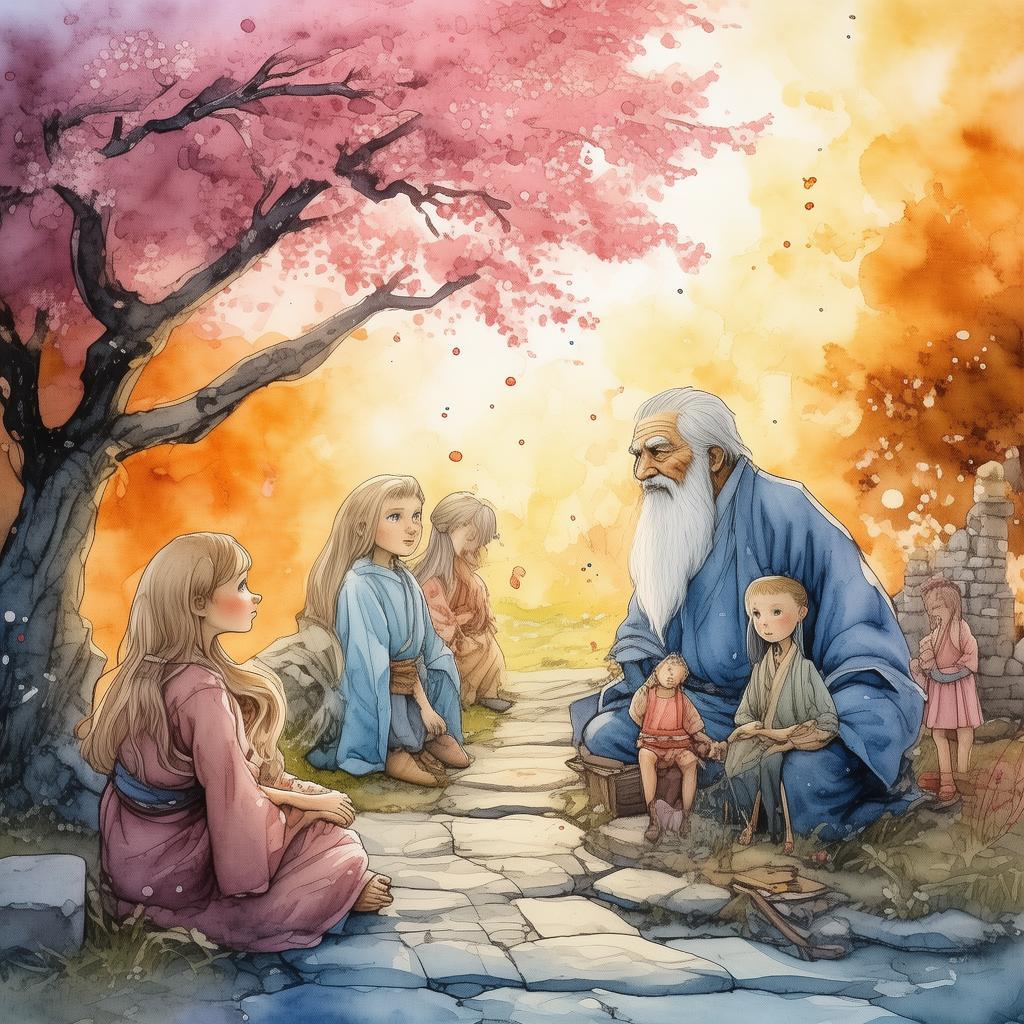
As Lin played his lute, the tavern filled with the haunting notes of his song. The outcasts listened intently, their eyes brimming with tears as the lyrics painted their own stories. Among the outcasts was a young girl named Yuet, whose life had been marred by the cruelty of the world. She had been sold into slavery as a child and had seen more pain than most could bear.
Lin's song spoke of the outcasts' longing for a world where they could be free from judgment and prejudice. It was a song of hope, a melody that whispered of a future where their voices would be heard. As Lin sang, Yuet felt a sense of kinship with the bard. She realized that in his music, she found her voice, her identity.
Days turned into weeks, and Lin continued to perform for the outcasts, his melodies becoming a beacon of hope in their lives. Yuet, inspired by Lin's music, decided to write her own lyrics, a testament to her experiences and the pain she had endured. Together, they crafted a song that would change the course of their lives and the lives of all the outcasts.
The song, titled "Echoes of the Outcast's Song," became an anthem for the outcasts, a powerful voice that demanded justice and recognition. It spread like wildfire, reaching the ears of the townspeople and the rulers of the land. The song's lyrics, filled with emotion and resilience, struck a chord in the hearts of many, and soon, the outcasts found themselves no longer shunned but instead embraced by the townspeople.
However, as the outcasts began to receive the recognition they had longed for, Lin found himself at a crossroads. The fame and fortune that came with his music did not satisfy him. He realized that the true power of his melodies lay not in the applause of the crowd but in the healing of the outcasts' souls.
One evening, as the sun dipped below the horizon, Lin sat alone by the riverbank, his lute resting on his lap. He played a new melody, one that spoke of his own journey and the transformation of the outcasts. It was a song of gratitude, a melody that honored the strength and resilience of those who had once been shunned.
As Lin played, a figure approached him, a woman with eyes that mirrored the pain of the outcasts. It was Mei, the tavern owner. She listened intently, her eyes brimming with tears.
"I have watched you change over these past months," she said, her voice trembling. "You have given the outcasts hope, and for that, they will forever be grateful."
Lin looked up at Mei, his eyes reflecting the same gratitude. "But it is they who have taught me the true meaning of music," he replied. "They have shown me that the power of song is not in fame or fortune, but in the ability to heal and bring hope."
Mei nodded, her eyes shining with a newfound understanding. "Then you must continue to sing for them, Lin. For they are the true bards of this land, their stories the most powerful songs of all."
With that, Lin stood up, his lute in hand. He knew that his journey was far from over, that the outcasts would always need him to sing their tales. And so, he continued to wander, his melodies echoing the stories of the outcasts, their songs of hope and resilience forever etched in the hearts of all who heard them.
The Bard's Lament: Echoes of the Outcast's Song became more than just a tale of music and redemption; it became a legend, a story that would be told for generations, a testament to the power of music to heal and unite.
✨ Original Statement ✨
All articles published on this website (including but not limited to text, images, videos, and other content) are original or authorized for reposting and are protected by relevant laws. Without the explicit written permission of this website, no individual or organization may copy, modify, repost, or use the content for commercial purposes.
If you need to quote or cooperate, please contact this site for authorization. We reserve the right to pursue legal responsibility for any unauthorized use.
Hereby declared.
